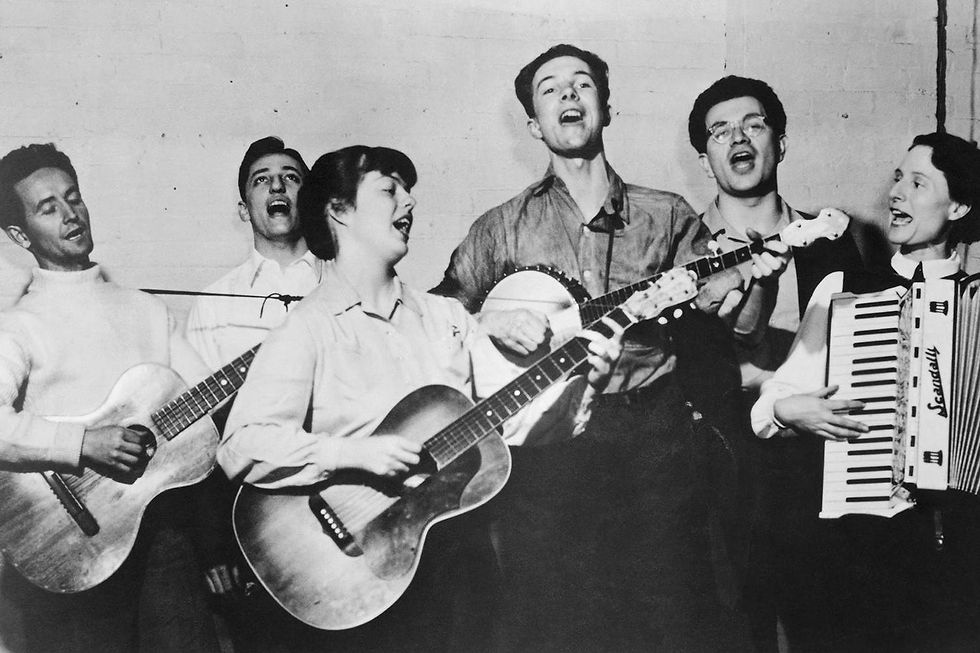The Shifting Soundscape: How Music Echoes Through the Generations
- janine629
- Aug 9, 2025
- 3 min read
Music, a universal language, transcends boundaries and speaks to the soul. But its voice isn't static; it evolves with each passing generation, shaping and reflecting the unique experiences, values, and technologies of its time. What resonates with a Baby Boomer might sound foreign to Gen Z, and understanding these generational shifts in musical taste offers a fascinating lens into our collective human journey.

For the Silent Generation (born 1928-1945) and early Baby Boomers (born 1946-1964), the golden age of radio and the rise of rock and roll were pivotal. This was a time of burgeoning optimism and societal change post-WWII. Big band jazz, swing, and then the rebellious energy of artists like Elvis Presley and The Beatles provided a soundtrack to burgeoning youth culture, a sense of liberation, and a shared experience through live performances and communal listening. Music often served as a unifying force, bringing people together around a shared idol or a dance craze.


As the Baby Boomers matured, they witnessed the counter-culture movements of the 60s and 70s. Folk music became the voice of protest, while psychedelic rock offered an escape into new sonic landscapes. This generation embraced music as a powerful tool for social commentary and personal expression, often forming strong identities around their chosen genres and artists. Albums became iconic artifacts, meant to be listened to in their entirety, reflecting a deeper, more contemplative engagement with the art form.


Generation X (born 1965-1980), often characterized as cynical and independent, found their anthems in grunge, alternative rock, and hip-hop. MTV became a cultural touchstone, forever changing how music was consumed and marketed. For Gen X, music often offered an outlet for angst and disillusionment with mainstream society. The rise of subcultures tied to specific musical genres allowed for a sense of belonging and rebellion, often rejecting the commercialism that started to define the music industry.

Then came the Millennials (born 1981-1996), the first true digital natives. The advent of the internet, MP3s, and file-sharing profoundly altered their relationship with music. Suddenly, music was more accessible, fragmented, and personalized. Genres blurred, and playlists became the new mixtapes. Pop, R&B, and electronic dance music (EDM) dominated, often reflecting a more optimistic and connected worldview, even as the world grappled with new technological frontiers. The focus shifted from acquiring physical albums to curating vast digital libraries and sharing them with friends.

Finally, Generation Z (born 1997-2012 onwards) is growing up in an era of hyper-connectivity and endless choice. Streaming services and social media platforms like TikTok have become their primary discovery tools. Short-form content, viral trends, and a diverse range of genres, from K-Pop to trap, define their listening habits. For Gen Z, music is often a tool for self-expression and identity formation within online communities. The emphasis is on immediate gratification, discoverability, and the ability to instantly share and react to new sounds. The concept of an album as a cohesive body of work is less central; instead, individual songs and snippets rule.
It's clear that technology plays a monumental role in shaping how each generation interacts with music. From the communal experience of radio to the personalized algorithms of streaming, the delivery mechanism influences the very nature of consumption. Yet, despite these differences, the core power of music remains constant: to evoke emotion, to tell stories, to build communities, and to provide a soundtrack to the ever-unfolding drama of human life. As new generations emerge, the soundscape will undoubtedly continue to shift, offering fresh insights into the evolving human experience.





Comments